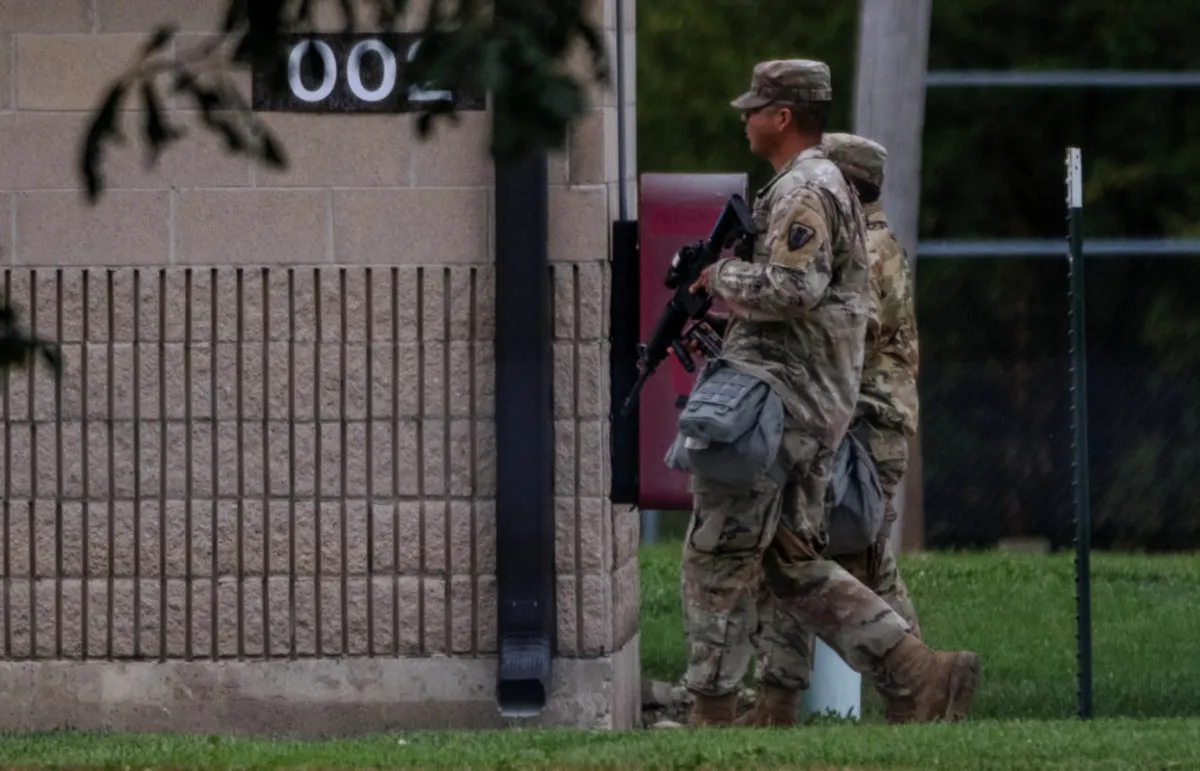
In a significant ruling on Saturday, an appeals court determined that the National Guard troops deployed to Illinois by President Donald Trump can remain in the state under federal control. However, the court has placed restrictions on their activities, stating that they cannot be used to protect federal property or conduct patrols for the time being. This decision comes amidst a backdrop of political and legal complexities surrounding the deployments.
The appeals court's ruling follows a temporary order issued by federal Judge April Perry earlier in the week, which blocked the National Guard deployment for at least two weeks. Judge Perry's ruling highlighted a lack of substantial evidence indicating a “danger of rebellion” in Illinois, particularly in light of Trump’s ongoing immigration crackdown. This judicial scrutiny reflects broader concerns about the appropriateness of military involvement in civilian law enforcement.
The ongoing deployments of the National Guard have emerged as a contentious issue, rooted in President Trump's assertion that crime rates are soaring in certain U.S. cities, including Chicago and Portland. Critics argue that these claims are not consistently supported by crime statistics, raising questions about the motivations behind the deployment. The situation has sparked a legal battle as advocates challenge the necessity of military presence in urban areas.
Under the Insurrection Act, a president may deploy active-duty military forces to states that fail to suppress insurrections or defy federal law. However, Judge Perry emphasized that the current circumstances in Illinois do not warrant such military intervention. In her opinion, she referenced foundational documents like the Federalist Papers, which were penned in the late 18th century to support the ratification of the U.S. Constitution. Perry stated, “There has been no showing that the civil power has failed,” underlining the effectiveness of existing law enforcement measures.
Judge Perry pointed to considerable evidence that federal agents have successfully conducted their operations, citing a significant rise in arrests and deportations. This data suggests that the civil authorities are managing law enforcement adequately, which further undermines the argument for military deployment in the state. The 500 Guard members from Texas and Illinois have primarily been stationed at a U.S. Army Reserve Center located in Elwood, southwest of Chicago, with a few assigned to a U.S. Immigration and Customs Enforcement building in Broadview.
The appeals court's ruling on the National Guard troops in Illinois exemplifies the ongoing tensions between federal and state authorities, particularly concerning law enforcement practices. As the legal battle continues, the implications of military involvement in civilian affairs remain a critical point of discussion in the broader context of public safety and governance.